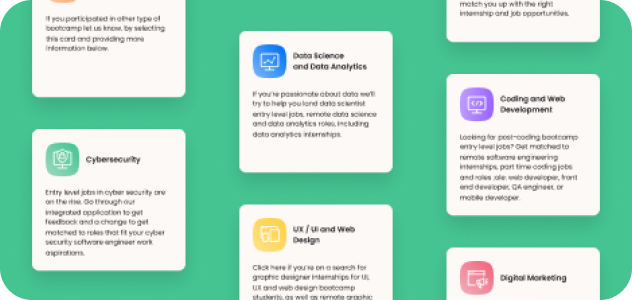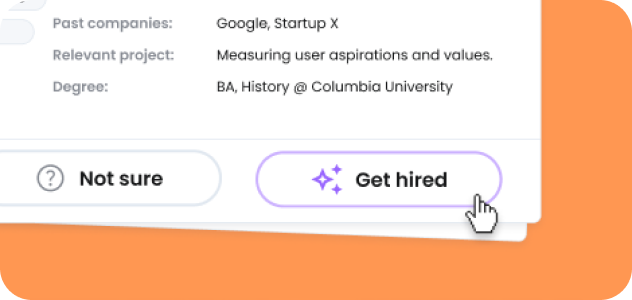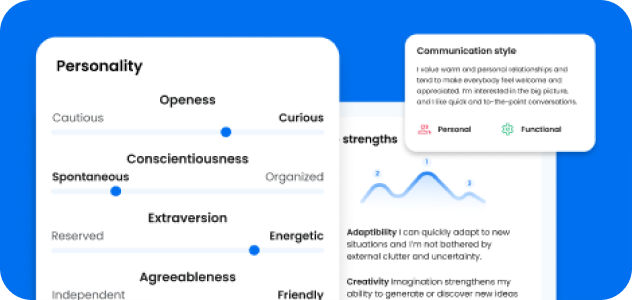Is recruiting a good career path? A short guide.
A solid, no bs career guide to career paths. Find job that fits you!
Is recruiting a good career path?
Recruiting is a dynamic and rewarding career path that offers a wide range of opportunities for those who are passionate about helping people find their dream jobs. It offers a variety of job roles, requires a combination of education and experience, and pays well.
Types of jobs in recruiting
Recruiting is a vast field that offers a variety of job roles. Some of the most common jobs in recruiting include recruitment consultant, talent acquisition specialist, HR recruiter, executive recruiter, and staffing manager. Each of these roles requires different skills and expertise, but they all share the common goal of finding the right candidates for the right job.
How best to start a career in recruiting?
Starting a career in recruiting requires a combination of education, experience, and networking. Most recruiters have a bachelor's degree in human resources, business administration, or a related field. However, some recruiters start their careers with a high school diploma and work their way up through the ranks. To gain experience, you can start by working as an intern or a recruiter's assistant. Networking is also crucial in recruiting, as it helps you build relationships with potential clients and candidates.
What do jobs in the US and UK pay in recruiting?
The pay scale for recruiting jobs varies depending on the job role, location, and experience. In the US, the average salary for a recruitment consultant is $50,000 per year, while a talent acquisition specialist earns an average of $70,000 per year. In the UK, the average salary for a recruitment consultant is £25,000 per year, while a talent acquisition specialist earns an average of £40,000 per year. However, these figures can vary significantly depending on the company, industry, and location.
What are the downsides of a career in recruiting?
Like any other career, recruiting has its downsides. One of the biggest challenges in recruiting is dealing with rejection. As a recruiter, you will have to deal with candidates who are not a good fit for the job or clients who are not interested in your services. Another challenge is the pressure to meet targets and deadlines. Recruiters are often under pressure to fill positions quickly, which can be stressful. Additionally, recruiting can be a competitive field, and you will need to work hard to stand out from the crowd.
What are the fastest growing jobs in recruiting?
The recruiting industry is constantly evolving, and new job roles are emerging all the time. Some of the fastest-growing jobs in recruiting include employer branding specialist, diversity and inclusion recruiter, and recruitment marketing specialist. These roles require a combination of marketing, branding, and recruiting skills, and they are in high demand as companies look to attract and retain top talent.
Your Fit for this job
Discover whether you’re a fit for this and other roles by taking our quick career discovery assessments

Salary data
A major reason why job markets are dysfunctional and inefficient is because of the lack of salary transparency in job postings. Knowing salary expectations on the candidate side and the salaries behind job postings would significantly cut down labor market and recruitment friction. That’s why we set out to gather - both based on user generated data and external data sources - the largest salary dataset on remote and hybrid jobs.
Check out our remote job board
Frequently asked questions
What is the career path for a recruiter?
The typical career path for a recruiter may include the following:
1. Entry-Level Recruiter: This is the starting point for many recruiters. As an entry-level recruiter, you will be responsible for sourcing candidates, screening resumes, and scheduling interviews.
2. Senior Recruiter: after gaining some experience, you can move up to a senior recruiter role. As a senior recruiter, you will be responsible for managing the recruitment process, coordinating with hiring managers, and negotiating job offers.
3. Recruitment Manager: leading a team of recruiters, setting recruitment goals, and developing recruitment strategies.
4. Talent Acquisition Director: overall talent acquisition strategy of an organization. You will work closely with senior leadership to identify talent needs and develop a plan to attract top talent.
5. HR Business Partner (HRBP): some recruiters may choose to transition into a broader HR partner role where they deal with 50% talent acquisition and 50% supporting senior leadership and hiring managers’ talent development needs.
What is the career path for a recruiting coordinator?
The career path for a recruiting coordinator typically involves moving up to a senior recruiting coordinator or HR coordinator role, followed by a move into a recruitment specialist or recruitment manager role.
What is the career path for an internal or agency recruiter?
The career path for an internal recruiter may include entry-level recruitment roles, such as recruiter or recruiting coordinator, followed by progression to senior recruiter or recruitment manager positions. From there, internal recruiters may advance to talent acquisition director or other HR leadership roles. Some internal recruiters may also choose to specialize in a particular area, such as executive search. If you’re entering the field, you can consider joining or starting out with one of the graduate trainee and entry-level training schemes offered by these companies below, they offer excellent training. The world's 10 global recruitment agencies that offer this are:
1. Adecco
2. Randstad
3. ManpowerGroup
4. Hays
5. Kelly Services
6. Allegis Group
7. Robert Walters
8. Page Personnel
9. Michael Page International
10. Hudson Global
And these are 10 global specialty recruitment agency brands:
1. Korn Ferry
2. Heidrick & Struggles
3. Spencer Stuart
4. Stanton Chase
5. Egon Zehnder
6. Russell Reynolds Associates
7. Boyden
8. Amrop
9. Odgers Berndtson
10. DHR International
Free Personality tests
All of the following assessment tools explore an individual's personality thoroughly, although the Big5 is the gold standard among personality assessments. And what’s key is that are all available for free here:


